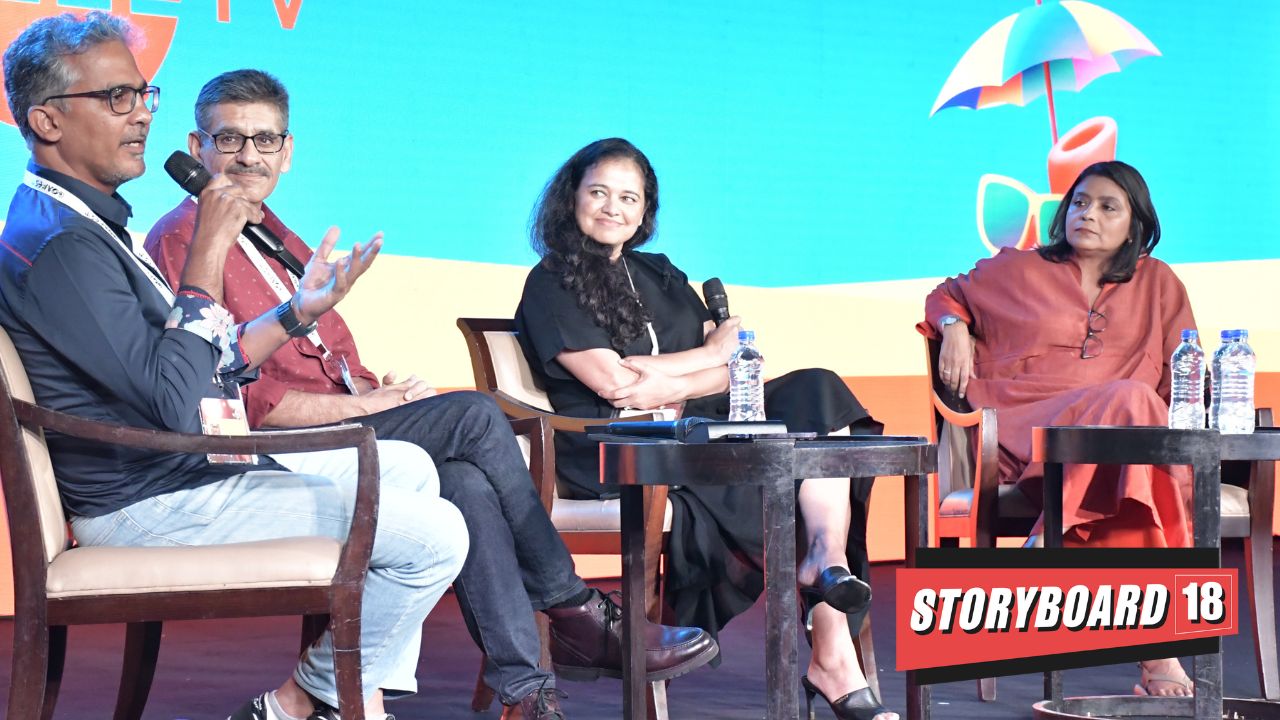Prabha Narasimhan, managing director and chief executive officer, Colgate – Palmolive India believes that brand love has not been sacrificed at the altar of short term sales.
She mentioned, “As you woke up this morning till the time you reached here, you would have interacted with a series of brands. A lot of them have existed for a really long time.” She cited the example of Colgate-Palmolive which has existed for 200 years, which continues to be loved and experiences growth.
On day 1 of Goafest, independent journalist Anuradha SenGupta moderated a panel discussion on ‘Brand love suffering at the altar of short term sale’. Apart from Narasimhan, the panelists consisted of Hemant Malik, divisional chief executive – ITC’s foods business and member of the corporate management committee of ITC; and Rohit Kapoor, CEO, Swiggy.
ITC’s Malik, who stated that they are not a digital commerce brand, mentioned, “Marketing has changed. Relationships itself have changed. As per the latest Tinder trends in 2022 instead of brand love, I would like to call it brand situationship. Narasimhan is lucky to run a brand of 200 years (Colgate-Palmolive) and there is a huge love for that brand. But a lot of us create challenger brands, and therefore one needs to find mechanisms for people who will be able to at least experience us.”
Narasimhan traces her footsteps backward and on the subject of building brands, stated that the big brands had three large advantages. They had the advantage of reach, media because it was quite concentrated and also had the advantage of capital. “Now, none of these advantages exist,” she added.
Swiggy’s Kapoor mentioned, “The notion that creativity is that one ad film which wins and is a fantastic output, has to die. Today, everybody has the license to creativity. I don’t think it needs to come from one place. It should flow from ten places.”
ITC’s Malik highlighted that, “You can see that if your brand is not performing well, you will blame the media agency.” He further stated, “Traditional advertising agencies need to change a lot. I need to learn from my agency partners so that we can keep on improving.”
Malik also said that the challenge is to make sure that all of us are working for the same brand. “We have a marketing insights person, marketing services person, then a digital person, and a performance marketing person. Therefore, we are kind of also segmenting it.”
On his expectations from agencies, Malik further highlighted, “I expect my agency partners to be the experts. Therefore, I need to learn from my partners. My expectation is that they are going to come and teach me things which I don’t know.” Swiggy’s Kapoor agreed with Malik. He said, “I love to get challenged by my agencies, partners.”
Colgate-Palmolive India’s Narasimhan mentioned, “Brand love is most critical for premiumisation. If that brand is not imprinted in my head, this is not the brand I am going to buy from this category, then I am not going to put it in my basket.”
ITC’s Malik stated that, “If you only have brand lovers then there will be no business. We need more people to try different brands so that penetration could increase.”
“You have to have a product that delivers. It doesn’t matter if you are an old or new brand, expensive or inexpensive. There has to be consistency in what the brand is telling you. The single purpose of a brand cannot be making money. The idea of having a larger purpose is extremely important,” Narasimhan said.
Maximum number of people who are talking about brands, the average is five. Eighteen percent of people have said that there is no brand they love. Narasimhan stated that first, brands need to make a promise and must deliver on that promise. It does not matter whether the brand is old or new, expensive or inexpensive. Second is maintaining consistency in what brands do. Communication of this in a manner that attracts attention is a part which is really difficult. “Because, you can take the communication, but it has to cut through, which takes a humongous amount of noise,” she added.
Adding to Narasimhan’s point, ITC’s Malik stated, “Consumer insights become most important.” He explained that the ability of the brands towards consumers with regards to the way they buy, their needs, and understandings becomes very crucial.
He further added, “Linking brand purpose with social causes can lead to something like green washing. We are doing a lot of work on plastic or packaging and we are committed to it. Consumers will see through it if there’s a lack of commitment from a brand.”
As the panel discussion came to its final leg, Malik concluded saying, “Nothing goes viral, you have to pay money for it.”
